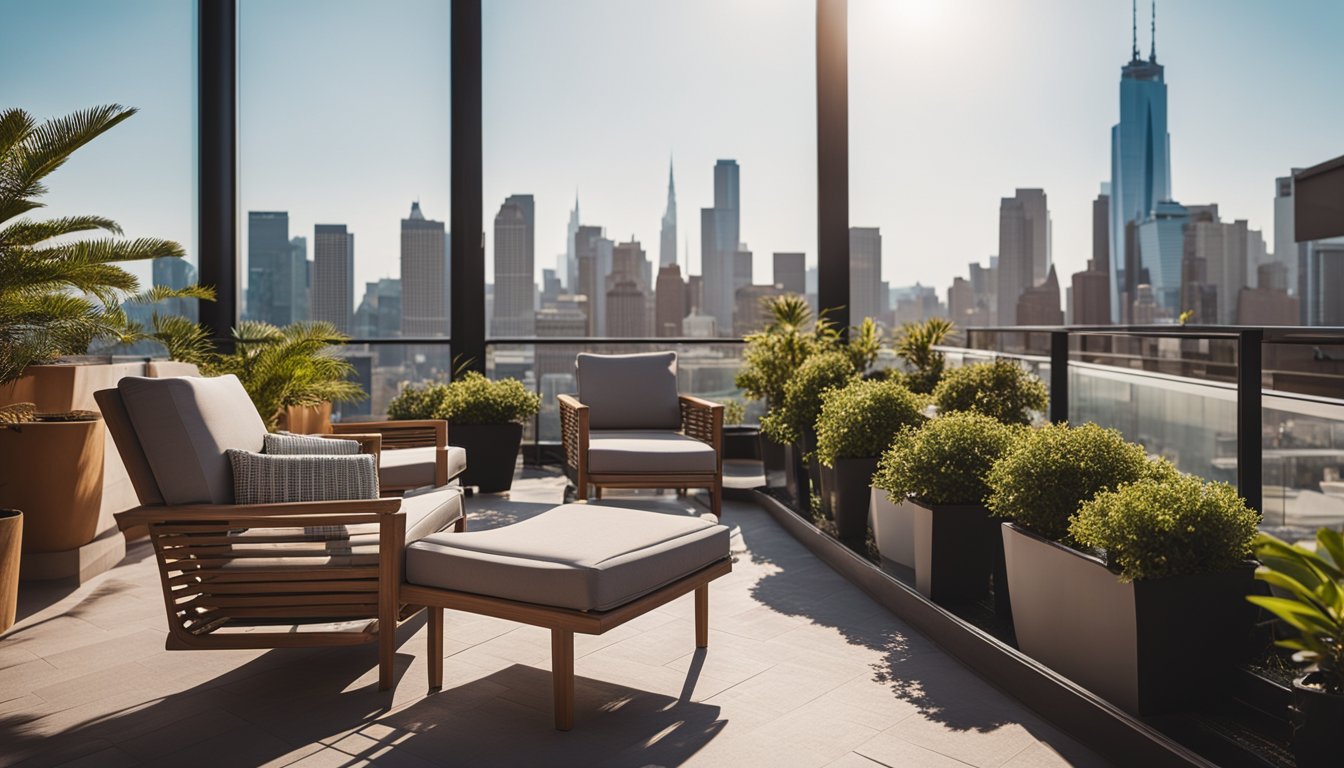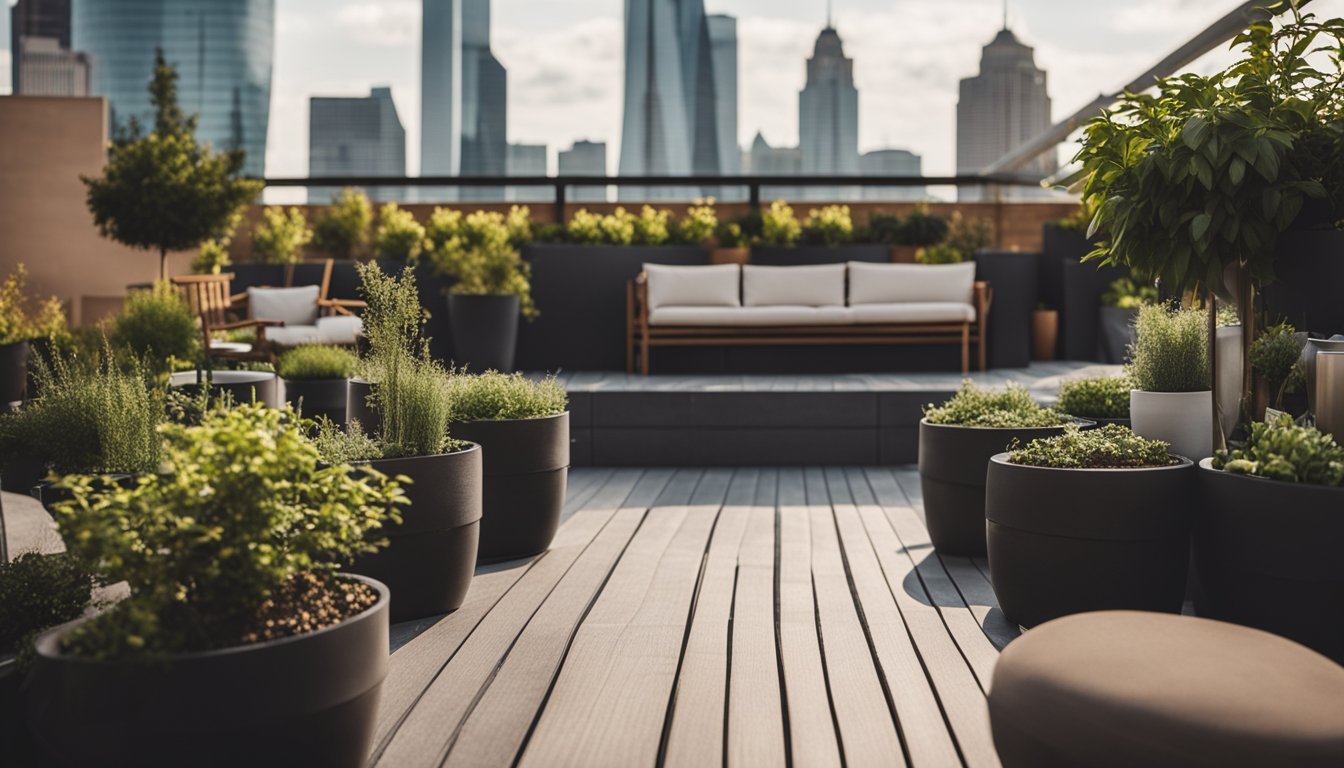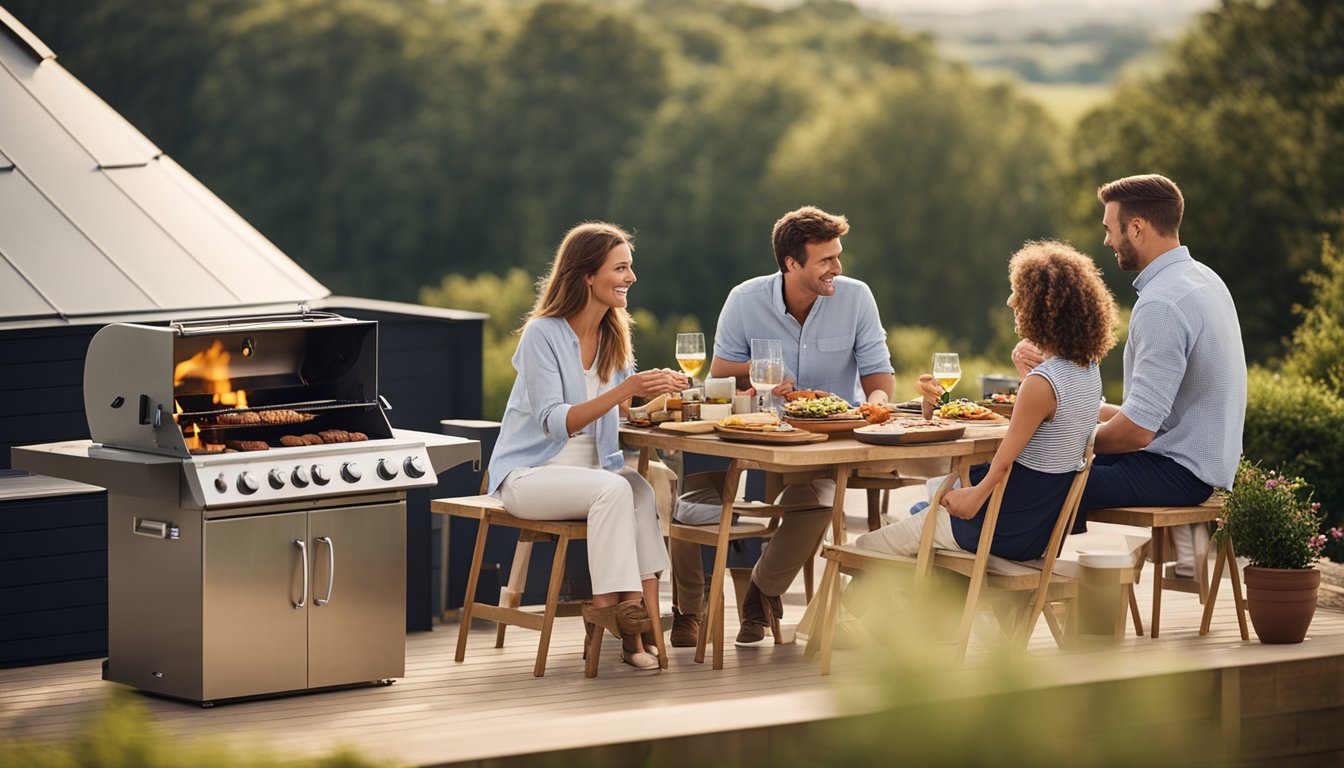Late updated: 27 Sep 2024 11:09
Written by: Oliver Bennett
Advantages Of Roof Decking For UK Homes: Boosting Aesthetics and Durability
Transforming your home's outdoor space can be both exciting and practical, and roof decking offers a unique avenue to achieve this. For UK homeowners, incorporating roof decking into your property not only enhances its aesthetic appeal but also provides a durable and low-maintenance outdoor area. Roof decking, with its strong and safe structure, can significantly increase the value and functionality of your home.

With various types and materials available, such as composite and metal decking, you can select an option that suits your budget and complements the UK's climate. Whether you prefer a sleek modern look or a traditional wooden finish, there's a roof decking solution that fits our preferences. The versatility of roof decking allows us to maximise our outdoor living space, offering a perfect spot for relaxation or hosting gatherings.
Given its many benefits, adding roof decking is a valuable enhancement to consider for our homes. It not only elevates the beauty of our property but also serves practical purposes, such as offering additional outdoor space with minimal maintenance required.
Key Takeaways
- Roof decking enhances property value and outdoor space.
- Various materials suit different budgets and styles.
- Minimal maintenance is required for long-lasting enjoyment.
Types and Materials of Roof Decking
Roof decking provides crucial support while enhancing the structural stability of a building. Various materials are used for decking, each offering distinct advantages regarding durability and performance. Let us explore these options based on their composition and suitability.
Wood Decking: Plywood and OSB
Wood is a highly popular material for roof decking, with plywood and OSB (Oriented Strand Board) being the primary types. Plywood decking is composed of multiple layers of thin wood veneers, glued together to improve their strength and resistance to expansion. The thickness of plywood varies, which affects its load-bearing capacity. It is often used where flexibility and natural wood aesthetics are desired.
OSB decking, on the other hand, is crafted from compressed wood particles bonded with strong adhesives, resulting in a board that's both sturdy and economical. It holds up well in humid conditions, making it a favoured choice in areas prone to moisture. Both plywood and OSB provide reliable support for roofing and ensure longevity when properly maintained.
Metal Roof Decking and Alternatives
Metal decking offers outstanding strength and durability, often used in commercial buildings due to its robustness. Materials such as steel and aluminium are common choices. Steel decking provides excellent load-bearing capabilities, while aluminium is valued for its lightweight nature and corrosion resistance. These materials are especially advantageous in regions with heavy snowfall or high winds due to their resilient nature.
Beyond metal, alternatives like concrete and composite decking offer specific benefits. Concrete decking is known for its fire resistance and high durability, ideal for flat roofs. Composite decking combines materials like wood fibres and plastic, offering versatility and weather resistance. Each of these materials suits different building needs, allowing us to choose based on specific structural requirements and aesthetics.
Benefits of Roof Decking for UK Homes

Roof decking offers numerous advantages for homeowners in the UK. It enhances the structural integrity of the roof, provides effective insulation, and reduces maintenance efforts.
Durability and Longevity
Roof decking significantly contributes to a roof’s structural integrity, ensuring it withstands various weather conditions. The materials commonly used, such as plywood, OSB, or metal, are notably durable and moisture resistant. This helps prevent deterioration and warping over time.
A sturdy roof deck supports the entire roofing system, especially under heavy loads like snow. Roof decking also boosts safety and accessibility, providing a stable platform for repairs or inspections. Selecting the best material for the decking is crucial to maximising lifespan and durability, making it a cost-effective investment.
Installation and Maintenance Considerations
The installation process for roof decking is straightforward, but it requires precision. Constructing a level surface is essential for smooth roofing material application. Proper underlayment is vital to ensure additional moisture protection and stability.
Once installed, roof decking is low maintenance compared to other home improvements. Regular checks and minor maintenance can prevent costly repairs down the line. Its low maintenance nature not only saves time but also contributes to its cost-effectiveness in the long term.
Insulation and Energy Efficiency
Roof decking contributes to improved insulation, enhancing a home’s energy efficiency. The added layer of decking serves as a barrier against heat loss in winter and heat gain in summer. This results in more stable indoor temperatures and reduced energy bills.
Opting for eco-friendly materials can further improve thermal performance. Some decking materials include insulation properties, which enhance their ability to conserve energy. These features make roof decking a noteworthy choice for those looking to reduce their carbon footprint and utility costs while maintaining comfortable living conditions.
Frequently Asked Questions

Roof decking offers numerous advantages for UK homeowners, enhancing the aesthetic appeal and functionality of homes. It's essential to understand the benefits, materials, and planning involved in installing a roof deck to make an informed decision.
What are the benefits of adding decking to a rooftop in UK properties?
Adding roof decking can transform under-utilised roof areas into inviting outdoor spaces. It provides a stylish locale for entertainment and relaxation, increasing both functionality and enjoyment for residents. Decking also augments the architectural appeal of a property, making it more visually attractive.
How does roof decking impact property valuation in the United Kingdom?
A well-designed roof deck can significantly boost property value. By enhancing outdoor living space and increasing the property’s overall aesthetic, it makes the home more desirable to potential buyers. This improvement often leads to a better return on investment should owners decide to sell.
What materials are recommended for durable and sustainable roof decking in the UK climate?
For durability and sustainability in the UK, materials such as composite decking, treated timber, and certain weather-resistant woods are recommended. These materials can withstand the UK's varied weather conditions while reducing environmental impact. Opting for sustainable sources also promotes environmental responsibility.
Could installing a roof deck enhance the outdoor living space of a UK home?
Yes, installing a roof deck expands the outdoor living area, allowing for versatile use such as gardens, seating areas, or entertaining spaces. This addition makes it possible to enjoy panoramic views and fresh air, creating a unique and usable extension of the home’s living area.
What are the key considerations when planning the installation of a roof deck in the UK?
Key considerations include securing planning permissions, ensuring structural integrity, and choosing suitable materials. It’s crucial to assess load-bearing capabilities and local regulations. Professional consultation is often advised to address these elements thoroughly, ensuring safety and compliance.
How does a roof deck contribute to the usability of outdoor space in British homes?
A roof deck contributes by optimising otherwise unused areas, offering a practical space for various activities. It can serve as a garden, a dining area, or a lounge, thus enhancing daily living and lifestyle. This makes limited urban spaces more interactive and enjoyable.
